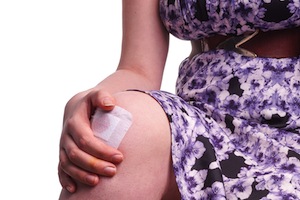 If you have slow healing wounds, they could easily become infected to the point you may need medical treatment as quickly as possible. In many cases, this issue is an indication that there could be some sort of underlying problem.
If you have slow healing wounds, they could easily become infected to the point you may need medical treatment as quickly as possible. In many cases, this issue is an indication that there could be some sort of underlying problem.
How a Wound Should Heal
Typically, if you suffer a wound or a burn of some kind, your body will immediately begin the healing process. The first thing that will usually happen is that your immune system will cause inflammation so that an infection does not set in. A scab made up of newly generated cells will then form over the wound, and then scar tissue will form to heal the wound. If you have slow healing wounds, however, there are several issues that can complicate this process. These include:
- Diabetes
- Low amounts of human growth hormone (HGH)
- Rheumatoid arthritis
- A zinc deficiency
- An arterial or vascular problem
How Diabetes Can Cause Slow Healing Wounds
If you have diabetes, you have an excess amount of blood glucose. As a result, your blood does not flow properly and it has a very difficult time to reach the part of your body that has suffered the wound. If this happens, you will be at risk for several serious complications, including fungal infections, bacterial infections and possibly even gangrene. By keeping your blood glucose levels under control you can reduce the potential complications associated with slow healing wounds.
Contact Us About Slow Healing Wounds
If you have a cut or a burn that takes too long to heal, get in touch with the experts at DFW Wound Care Center as soon as you can. We have a great deal of experience dealing with slow healing wounds, and will provide the treatment you need to promote proper healing and reduce the chances of serious complications. Contact us online or call us at 972-665-6292 (Plano) or 972-318-2383 (Lewisville) to schedule an examination.
Contact us
Schedule an appointment
with our specialists by contacting us or calling our:
